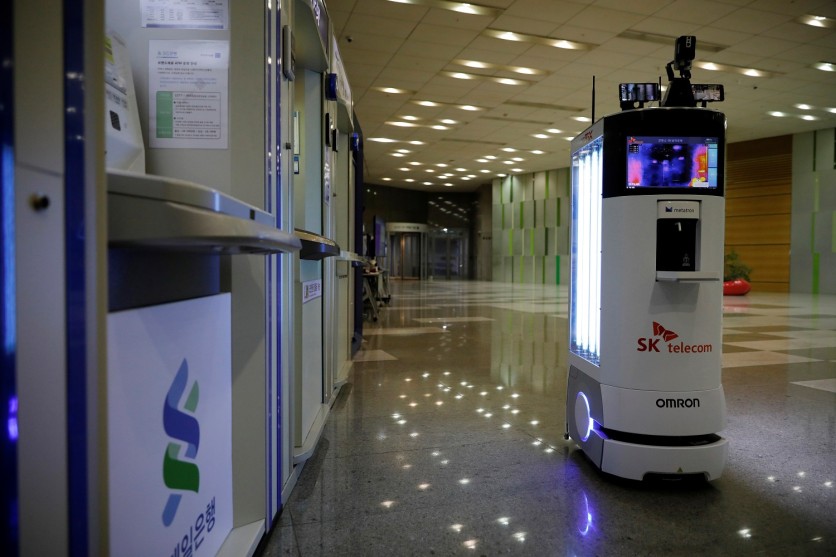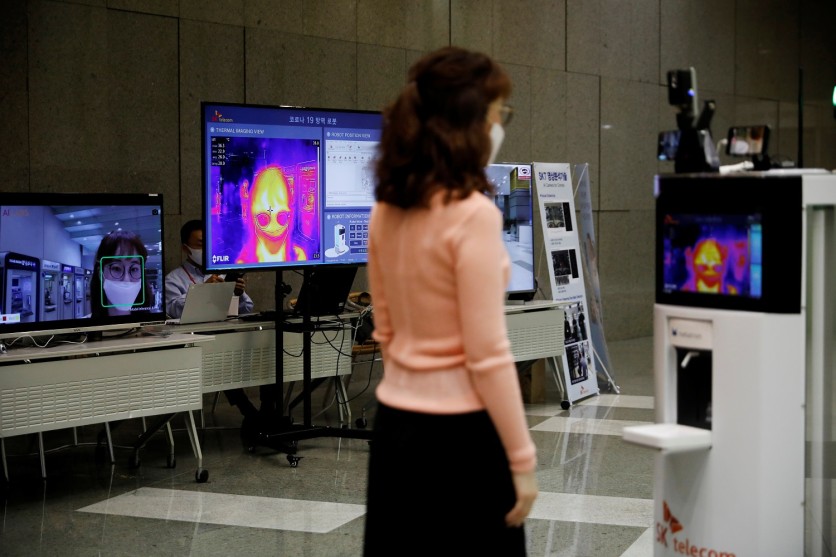A self-driving robot is now going rounds the lobby of SK Telecom, South Korea's largest mobile operator, to ensure social distancing and provide disinfectants.
With cameras and an LED screen, the robot checks their temperature, dispenses hand sanitizer, disinfects the floor, and greets visitors to "take part in social distancing."

Created by SK Telecom and Omron Electronics Korea, the robot provides an industrial automation solution and transmits data to its server in real-time, according to Reuters. It is powered by SK's fifth-generation (5G) technology.
Korea has long been using robotics for tasks, including manufacturing and cleaning. However, during the coronavirus pandemic, more companies strive to boost technology to reduce human contact.
With more than 11,000 coronavirus cases and 269 deaths, South Korea has succeeded in containing the epidemic and now transitions from intensive social distancing towards "distancing in daily life".
As programmed, the robot sets off an alarm if a person has a temperature of over 37.5 Celsius or 99.5 Fahrenheit. It uses artificial intelligence (AI) to detect crowds and advise them to disperse while asking people without a mask to wear one.
"The robot helps minimize people-to-people contact and reduces the time that's taken for temperature checks at the entrance, and the AI technology raises accuracy," SK Telecom head of data business cooperation Ra Kyhong-hwan told Reuters as reported by Republic World.
Meanwhile, the robot can disinfect 99% of 33 square meters of surface area in 10 minutes using ultraviolet lamps and two disinfectant sprayers. Also, Ra said that developers programmed the robot to hide faces mirrored on the screen to protect people's privacy. He is also one of the developers of the robot.

"It felt a bit strange when I first saw the robot, but I realize it can raise awareness about distancing and also improves accuracy in temperature checks," SK Telecom employee Lim Yeon-June said.
Smaller businesses to use robots
To ensure the safety of their business and consumers, smaller businesses and retailers are also seeking to use robots.
In the central city of Daejeon, a robot in a café takes orders, makes 60 types of drinks, and delivers them to customers at their seats.
Also, at CJ CGV, South Korea's largest multiplex cinema chain, customers can buy tickets, popcorns, and parking vouchers from robots, which also guide them to their seats or the restrooms.
Last month, owner of South Korea's top food delivery app, Woowa Brothers, rolled out a pilot testing for a self-driving delivery robot that can move between floors of an office or apartment building.
A customer can place an order using a QR code while the robot named Delitower would pick up food from the restaurant or a delivery rider and bring it to the customer's location, even on different floors.
"We've been testing delivery robots since last year and are seeking to adopt them at the offices, hotels, and residential complexes as more people find robots to be useful amid the coronavirus outbreak and social distancing," a spokesperson of Woowa Brothers told Reuters.
![Apple Watch Series 10 [GPS 42mm]](https://d.techtimes.com/en/full/453899/apple-watch-series-10-gps-42mm.jpg?w=184&h=103&f=9fb3c2ea2db928c663d1d2eadbcb3e52)



